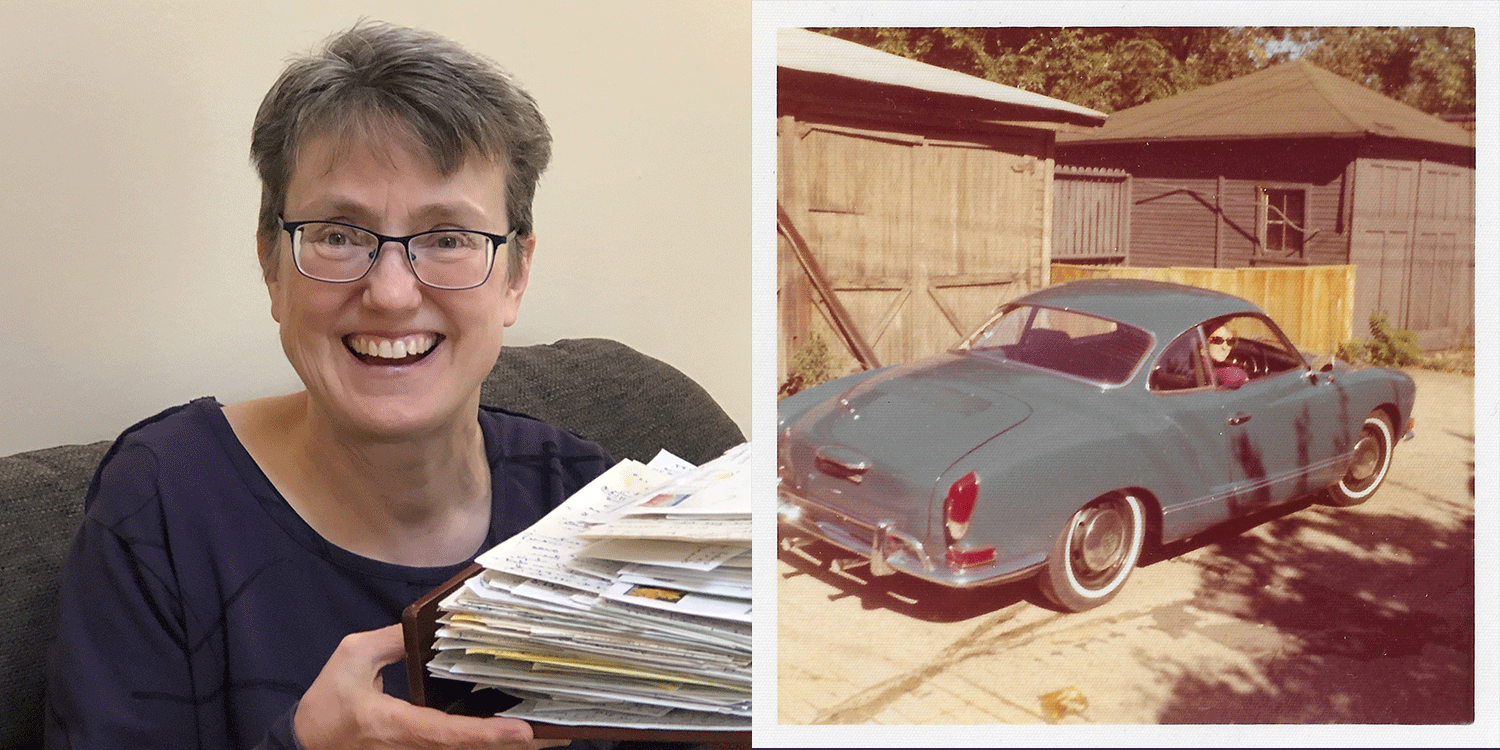With the heart of a writer, Mildred (Milly) Reinke Dordal ’49 chronicled her experiences through handwritten letters to her four children. She explored life through a lens all her own – switching between subjects such as the despair of the war in the Middle East to the melody of a bird sitting outside her window. Often four to five pages with tiny handwriting, Milly’s letters allowed her children to catch a glimpse of a complex woman with a story all her own.
“My mother, she had wanted to be a writer. She went to Capital and then went on to get an M.S.W., but really deep down, I think, she wanted to be a writer. She never really pursued writing in an official way, but she wrote letters all the time,” said Lisa Dordal.
“I read the letters when I received them, and I kept most of them. About three years ago, for some reason, I just started looking around for them. I found a box of about 180 letters that she had written between 1983 and 2001, so over a 17-year period, right up until she died.”
Lisa, M.F.A., M.Div., writer-in-residence, English, Vanderbilt University, is an accomplished poet and published author. She shares a co-authorship with her mom on her most recent publication, “Next Time You Come Home,” which was released in September 2023 by Black Lawrence Press.
“The thing that was so transformative about the letters is that it’s only my daytime mother that really comes through. I just felt this love for her coming through these letters. My mother had been an alcoholic. She started drinking regularly when I was about 10. So, there were times growing up where I had to kind of distinguish between my daytime mother and my nighttime mother,” said Lisa. “After I started reading [the letters], I immediately started thinking about a way to preserve them. Suddenly it was like my mother had come back from dead. She was just so present.”
While Lisa didn’t know what she was going to do with the letters, she wanted to preserve and explore the newfound love and understanding between a mother and a daughter.
“I just started tinkering. I didn’t know exactly what I was doing, but I just started distilling them down to the essence of each letter. They’re not fully stand-alone poems and they’re not letters anymore. Most of them are about 14 lines, and mediative entries about the weather, motherhood, grief, and the passage of time. She engages with current events and social issues. There are comments about what’s going on in terms of sexism and racism,” said Lisa.
“They’re just these small moments that I think really drew me to them, besides this overwhelming sense of feeling loved by her. We live in such a fast-paced world in which so many of us are on social media, and just skimming headlines and getting a glimpse of what’s going on in the world. The letters are slow and mediative, really taking in the world in a way that I struggle to on a daily basis.”
When it came time to publish “Next Time You Come Home,” Lisa didn’t hesitate to add Milly.
“The book felt very collaborative, like it wasn’t just me working on this. I felt like I was listening to these letters and looking for what it was that needed to be called out. These are her words, but they’re shaped into something different. I think she would have never imagined that anything from these letters would be published or would be turned into art,” said Lisa. “The kinds of things she noticed in the world; I really think it’s worthy of being called art. It was very important to me that her name be on the book. It was her dream.”
